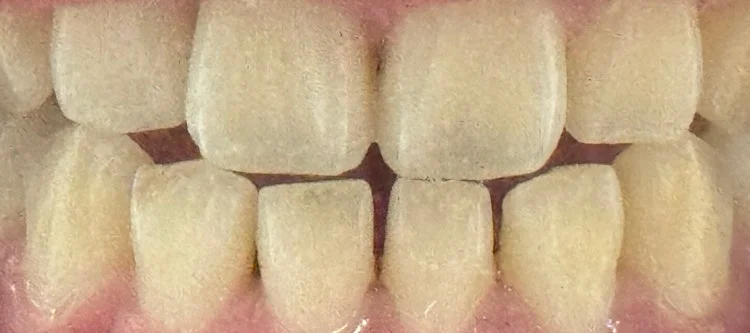Splint Side Effects
About 2 years ago, my jaw suddenly wouldn't open properly. I went to the hospital, and they said there was apparently a problem with my right jaw joint disc. So, I got a custom splint fitted for my upper teeth, and I've been using it for about a year and a half now.
I go for check-ups once a month, but my bite alignment (occlusion) is constantly off. They've had to adjust the splint by grinding it down, and they've also ground down my actual teeth two or three times. Even at this point, my bite still doesn't feel right. They took X-rays a few times during treatment, and the only finding mentioned was that my jaw seems to have gotten longer; they said the bone itself is fine.
However, starting a few days ago, I've noticed my lower front teeth seem to be spreading apart (a gap is forming). Also, my dental midline has been off for a long time now (it started after the initial jaw problem began; before that, my bite and midline were perfectly aligned).
Could this issue with my lower teeth spreading be a side effect of the splint?
Could it be happening because my jaw itself is misaligned or shifted?
Is there any possible connection to hip joint misalignment?
I'm asking these questions because this is causing me a lot of stress...
